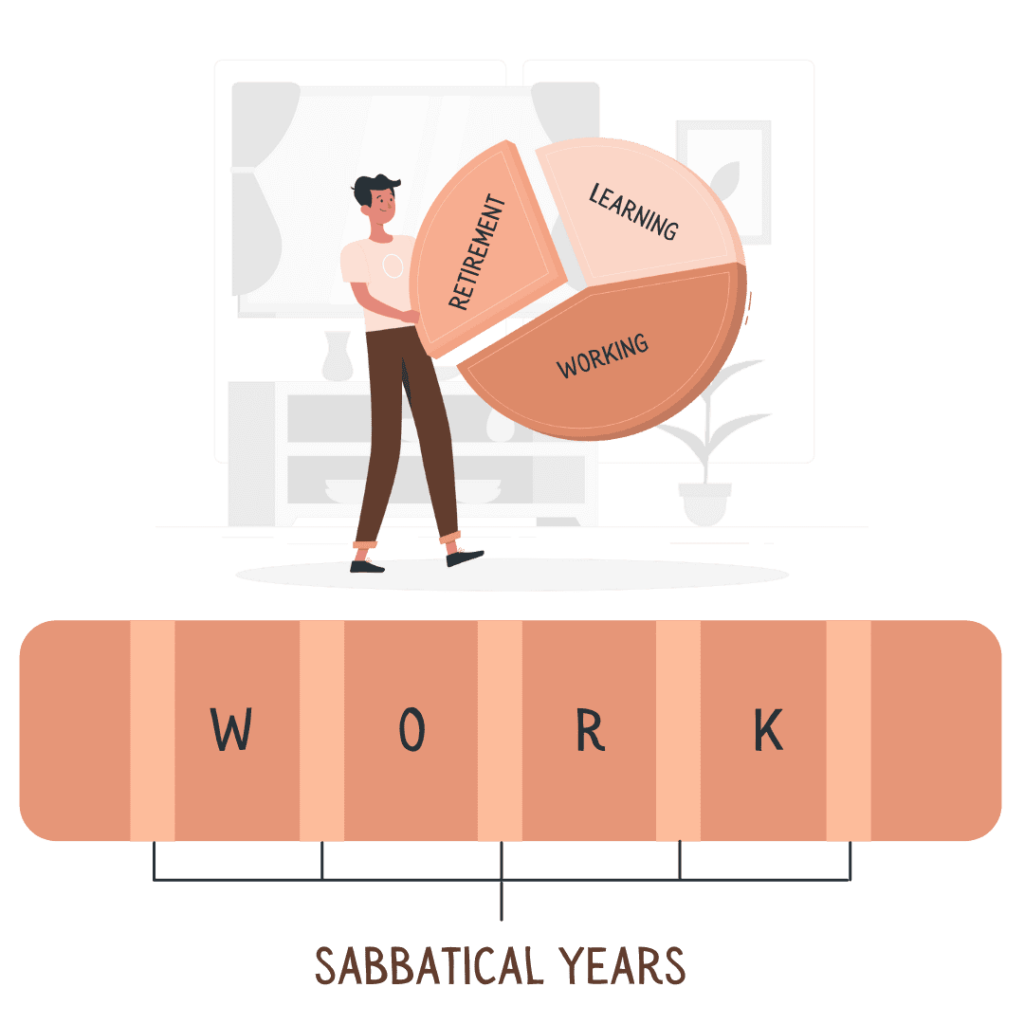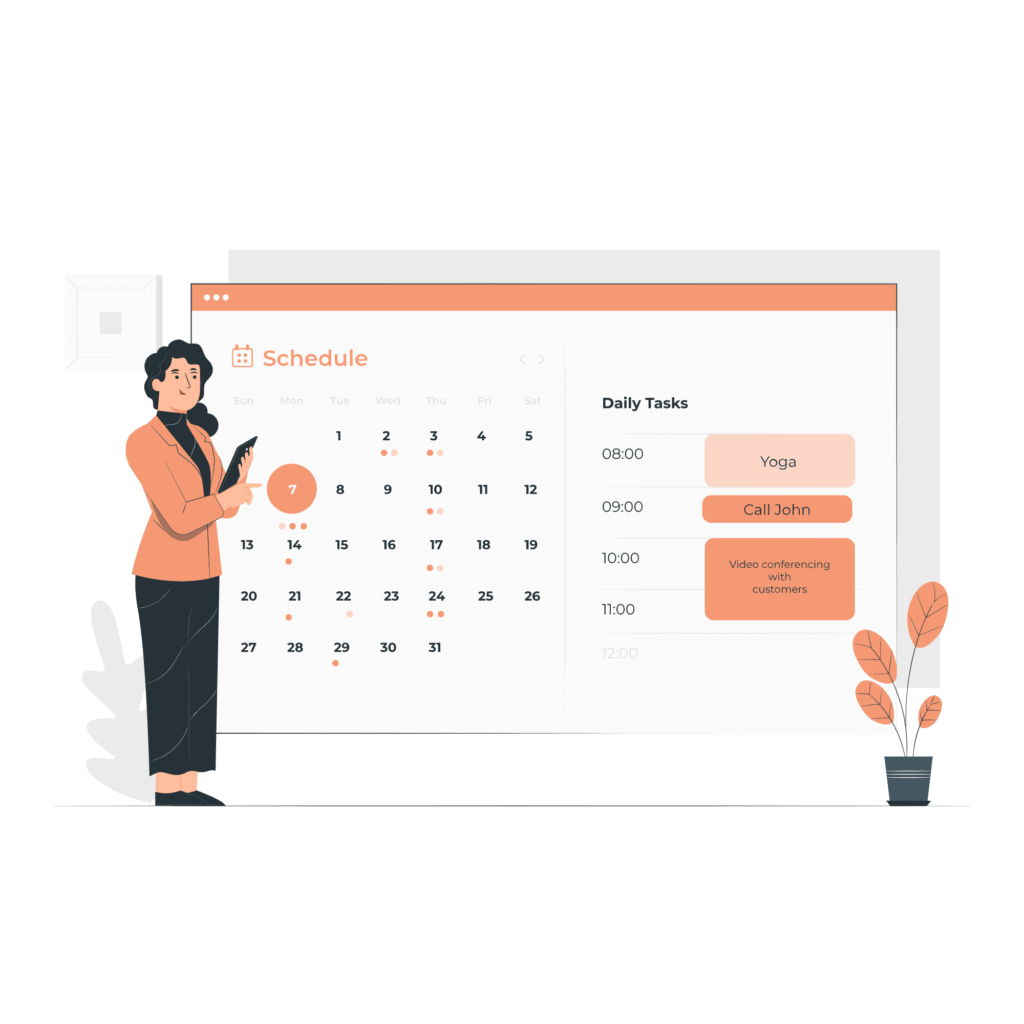6 Questions to Ask Yourself Before Taking a Career Break

Recently, I watched this insightful ted talk by Stefan Stagmeister, a New York based designer. He said that human life can be broadly divided into 3 sections – the first 25 years is dedicated to learning, the next 40 years is meant for working, and the last 15 years is dedicated to your retirement. What Stefan decided to do was borrow 5 years from his retirement, and sprinkle it across the working years, so he can make the most of this free time. That’s how he justifies taking a year-long sabbatical every 7 years.
‘Sabbatical’, ‘career break’, ‘adult gap year’ – the concept of taking a deliberate break from work has become increasingly popular among today’s workforce.
Snowballing stress at work, lack of time to spend with family, and the absence of personal fulfilment may have been burdens our parents took on and powered through, but our generation is slightly less tolerant. We’re willing to deprioritize our corporate stints and focus on family, health, passion, or whatever is important to us at that point, even if it means adopting a non-linear career path.
It’s one thing to suddenly be pushed to the doorstep of unemployment, as the current pandemic seems to have done to thousands. At this juncture, you don’t have a choice but to figure your way out as you go.
But if taking a break is a thought that has been on your mind for a while, then you have the luxury of being methodical in approaching your next steps.
There are 6 questions you must address before taking the jump – Why do I want a break? How will it affect my career? What are the consequences? What would my break look like? How would I plan my finances? Do I have a support system?
Dividing each of these questions into focused follow-ups will help you introspect and plan your journey.
1. Why do I want a break?

There are several reasons why you’d want to temporarily deprioritize your career and take a break. What is your reason?
Do you need to dedicate more time to your family? Does your physical or mental health require attention? Do you want to explore your passion? Do you want to broaden your skillset? Do you need a break from work stress?
It’s important to articulate your reason and convince yourself that it’s valid to YOU. The gravity of your reason will help you answer all other questions.
2. What would a break mean to my career?

You want this break to only be a pause in your career and not a complete stop. Fact is, the level of competition is high in every industry. Research and planning will ensure that your journey back to the professional space is smooth. This would mean asking yourself the right questions –
What stage is my career in?
Am I a fresher or do I have 10-15 years of experience?
If you’ve only just started your career and decide to take a break, chances are that you may have to restart at level zero when you re-enter the workforce. This journey may be a little easier if you have certain years of experience under your belt.
It may be a good idea to do some research and talk to mentors about this before making your decision.
How fast does my industry evolve?
A digital marketer’s roles and responsibilities are constantly changing. It’s a continuous learning process. On the other hand, the food industry and healthcare industry are known to be sturdy spaces that are well protected from rapid change and creative destruction.
Which bracket does your industry fall under? This would have an impact on the difficulty level of re-entering the industry after a break.
However, on the bright side, being in a fast-evolving industry doesn’t necessarily mean that you can’t take a break. It only means that you need to upskill and keep yourself relevant during your break.
Would I want to come back to the same industry after my break?
Taking a break doesn’t always stem from a lack of passion or love for your job. A lot of times circumstances would require you to briefly put your career on hold and prioritise other aspects of your life – family, maternity, mental or physical health to name a few.
Even if you’re taking the break to get some clarity on what you want to do with your life, you need to be prepared for the eventuality of coming back to the same industry.
If this is the case, what are you doing to ensure your journey back is easy? Have you built strong connections with your peers and managers so you can get help on your return? Have you checked with your company if they allow sabbaticals or if you would be welcome back after your break?
Would I want to transition to a different career after my break?
If you’re looking to pursue other interests, and you’re taking a break so you can take a detour in your career, then you need to answer a different set of questions.
What would it take to break into another industry? Will my current skills or connections be able to help me in my journey? Do I want to switch track because I’m not enjoying my current industry, or because I’m passionate about another industry?
Most important of all – What aspects of my current role/career/industry would I want to see replicated in my new journey, and what traits would I absolutely want to avoid?
How would my goals be affected?
You would’ve set certain goals for yourself at the beginning of your career journey – ‘in ‘x’ number of years I should be receiving ‘y’ salary’ or ‘be in ‘z’ position’. What were the goals you’d set for yourself before you realized you needed a break?
Chances are, a break may derail your goal. Are you okay with re-assessing and re-aligning them?
3. What are the consequences?

It would help to look at this from both angles – what are the consequences of taking a break and what are the consequences of NOT taking a break?
For example, the consequences of taking a break could be lagging in your career, not having a recurring income, and having to individually upskill to stay relevant. On the flip side, not taking a break could lead to an early burnout, losing precious moments with your family, or having regrets of not experiencing everything you wanted to.
After creating both lists comes the most important question – Which of the consequences seem less dire to you?
4. What am I going to do on my break?

A lot of people entering their gap years approach it with a laissez faire attitude, with the intention of ‘going where life takes them’. While it is good to be flexible in your approach, planning an unplanned day will help you make the most of it.
What is the duration of your break?
6 months? 1 year? 5 years?
Deciding the amount of time that you want/need off will become the foundation to plan the rest of your break. For one, you will have to plan your resources accordingly, so you can have a comfortable break. Apart from this, having a set duration will also help you set a goal or an agenda for your break, and a plan to achieve it. This brings us to the next question –
What is the agenda of your break?
While you don’t need a weekly schedule, understanding the intended outcome of your break will help you make the most of your time off. Whether it’s something major, like get clarity on career or life, work on your mental health, or become a digital nomad, or something a little simpler like, improve your sleep pattern, eat healthily, or get more exercise, it helps to have a goal to work towards.
How are you planning on staying relevant during your break?
Considering that you eventually would like to get back to the professional world, you need to think about what you can do to stay relevant even on your time off. This could mean a little bit of networking, doing a few upskilling courses, etc.
5. Can my financials support a break?

The most critical part of your decision-making process – will your bank balance be able to support your needs for this period?
Planning your personal finances will help you take a more relaxed break. It would help to decide the amount of money you would need to survive on your break, and work towards planning and saving that amount.
The norm is to ensure that you have enough money to stay comfortable for the duration of your break + 6 months after.
6. Do you have a support system?

Ironically, taking a ‘break’ can be quite taxing if you don’t have a support system. Whether it is your spouse, parents, close friends, or mentor, you will need emotional support to get through those confusing days when you suddenly value yourself lesser for not following your pre-destined path, or find yourself bombarded with intrusive questions from well-meaning folks.
Another aspect to be prepared for is the sudden change in your social life. You go from talking to colleagues every day, to suddenly feeling a little isolated. What are you going to do to ensure you keep your social life sufficiently active?
While the answers to all these questions should ideally come from within, not everyone has the clarity to do so. What would help is to find a coach who can help you through your introspection process and find answers.
Answering these questions before taking your break will help you get clarity on why and how you take your break, will make your gap years more fruitful, and make your transition back to your professional life a lot smoother.